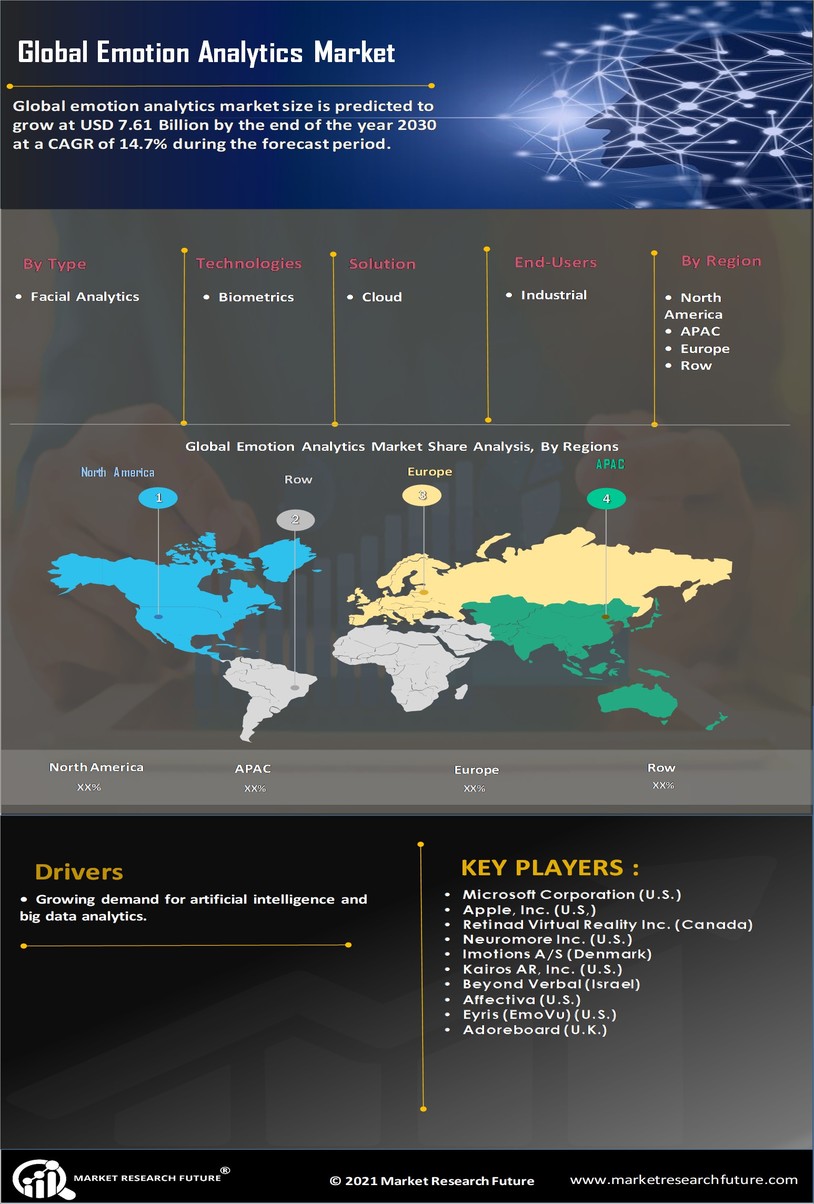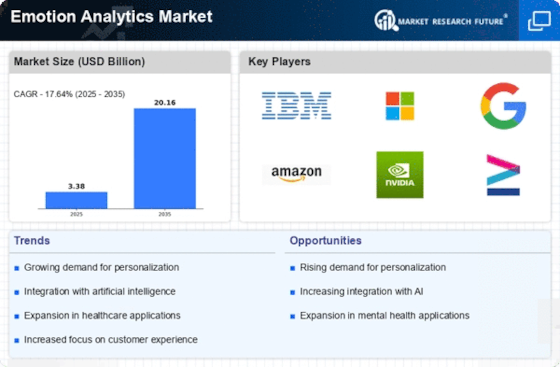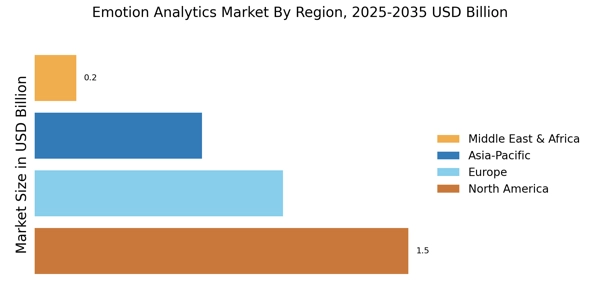Advancements in AI and Machine Learning
Technological advancements in artificial intelligence and machine learning significantly influence the Emotion Analytics Market. These innovations enable more sophisticated analysis of emotional data, allowing for real-time insights into consumer sentiment. As AI algorithms become more refined, they can process vast amounts of data from various sources, including social media and customer feedback. This capability enhances the accuracy of emotion detection, providing businesses with actionable insights. The integration of AI in emotion analytics tools is projected to contribute to a market growth rate of over 25% annually. Consequently, the Emotion Analytics Market is poised for rapid expansion as organizations adopt these advanced technologies to better understand and respond to customer emotions.
Rising Demand for Personalized Marketing
The Emotion Analytics Market experiences a notable surge in demand for personalized marketing strategies. Companies increasingly recognize the importance of understanding consumer emotions to tailor their marketing efforts effectively. By leveraging emotion analytics, businesses can gain insights into customer preferences and behaviors, allowing for more targeted campaigns. This trend is reflected in the projected growth of the emotion analytics market, which is expected to reach USD 5 billion by 2026. As organizations strive to enhance customer engagement, the ability to analyze emotional responses becomes a critical component of marketing strategies. The Emotion Analytics Market thus plays a pivotal role in shaping how brands connect with their audiences, fostering loyalty and driving sales.
Growing Importance of Customer Experience
The emphasis on customer experience continues to drive the growth of the Emotion Analytics Market. Companies are increasingly aware that understanding customer emotions is essential for delivering exceptional experiences. Emotion analytics provides valuable insights into customer satisfaction and loyalty, enabling businesses to identify pain points and improve service delivery. According to recent studies, organizations that prioritize customer experience see a 60% increase in customer retention rates. This trend underscores the necessity for businesses to invest in emotion analytics tools to enhance their understanding of customer sentiments. As a result, the Emotion Analytics Market is likely to witness sustained growth as companies seek to leverage emotional insights to create more meaningful interactions with their customers.
Emergence of Real-time Feedback Mechanisms
The emergence of real-time feedback mechanisms is reshaping the landscape of the Emotion Analytics Market. Businesses are increasingly adopting tools that allow for immediate analysis of customer emotions during interactions. This capability enables organizations to respond promptly to customer needs and concerns, fostering a more dynamic relationship with their audience. The demand for real-time feedback solutions is expected to drive market growth, with projections indicating a potential increase in market size by 40% within the next few years. As companies recognize the value of timely emotional insights, the Emotion Analytics Market is likely to see a surge in the development and implementation of these innovative feedback mechanisms.
Integration of Emotion Analytics in Healthcare
The integration of emotion analytics within the healthcare sector represents a burgeoning opportunity for the Emotion Analytics Market. Healthcare providers increasingly utilize emotion analytics to assess patient experiences and improve care delivery. By analyzing emotional responses, healthcare professionals can gain insights into patient satisfaction and emotional well-being, leading to better treatment outcomes. The market for emotion analytics in healthcare is projected to grow significantly, with estimates suggesting a compound annual growth rate of 30% over the next five years. This trend highlights the potential for emotion analytics to transform patient care and enhance the overall healthcare experience. Consequently, the Emotion Analytics Market is likely to expand as healthcare organizations adopt these innovative solutions.


















